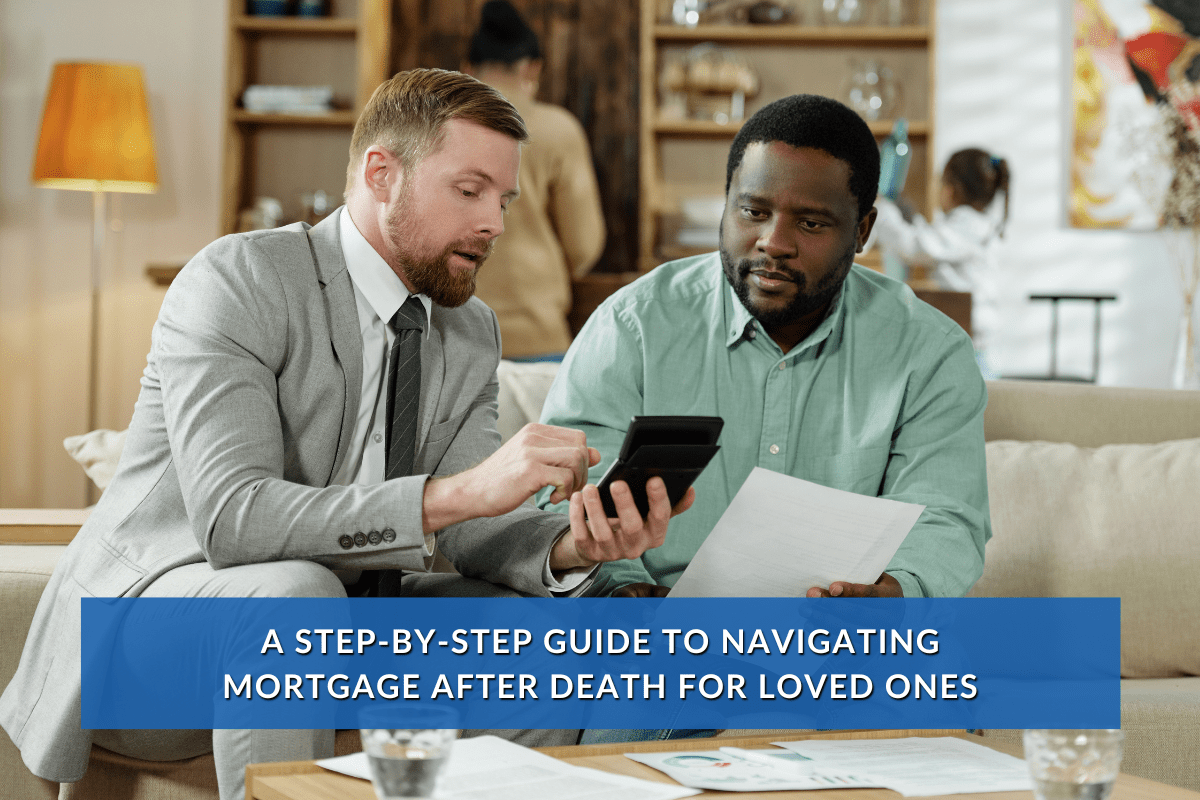Losing a loved one is never easy, and it’s even more challenging to navigate the various financial and legal matters that arise after death. One such topic is understanding a deceased loved one’s mortgage and what happens to it after they pass away. In this blog, we’ll provide a step-by-step guide to help you navigate mortgage after death for a loved one.
Gather Important Documents
To begin, you’ll need to gather the necessary documents, including the deceased loved one’s will, death certificate, and mortgage paperwork. These documents will help you understand the terms of the mortgage, the remaining balance, and any outstanding payments that need to be made.
Contact the Lender
Once you have the necessary paperwork, the next step is to contact the lender. It’s important to let them know that the borrower has passed away and to ask about their mortgage policies after death. The lender may require additional documentation or information, so be prepared with all necessary paperwork.
Determine All Your Options
Your options depend on whether the mortgage holder has named a beneficiary or if the property is part of the estate. If a beneficiary is named, they may be able to assume the mortgage and continue making payments. If the property is part of the estate, the executor or administrator of the estate may decide to sell the property to pay off any outstanding debts, including the mortgage.
If You Are The Beneficiary:
- Consider Refinancing
If you have sufficient income or assets, consider refinancing the mortgage so that it can be paid off more quickly or at a lower interest rate. This can reduce monthly payments and make it easier for surviving family members to manage their finances in light of this change in circumstances.
- Sell the Property
Maybe refinancing is not an option, selling the property may be necessary in order to pay off the remaining balance on the loan. Before doing so, it’s essential to consult with an attorney specializing in real estate law to understand your rights and obligations when selling a home after someone passes away.
- Transfer Ownership
In some cases, it may be possible for ownership of the property to be transferred from one family member or beneficiary to another without going through a formal sale process. This can be beneficial if there are multiple heirs who want access to, or ownership of, a particular property but don’t have enough money between them all to pay off its existing loan balance right away.
- Request Forbearance From The Lender
If none of these options seem feasible, then it may be worth contacting your lender directly and requesting forbearance on their part. In many cases, lenders will agree to pause payments for several months while arrangements are being made for how best to handle this situation. However, keep in mind that interest will still accrue during this time, so it’s crucial to weigh whether this solution would actually save money overall compared to others mentioned above.
Seek Professional Advice
Navigating the complexities of managing a mortgage after the death of a loved one can be overwhelming. It is highly recommended to seek professional advice from an attorney, financial advisor, or mortgage specialist. They can provide personalized guidance based on your specific situation and help you make informed decisions.
In Conclusion
Dealing with a loved one’s mortgage after their death can be overwhelming, but it’s essential to understand your options. By following these steps, gathering the necessary documentation, working with a lender and an attorney, and seeking financial counseling, you can stay on top of the mortgage and protect your loved one’s legacy. Remember, there’s no need to navigate this process alone, and professionals are available to help you along the way.
Are you struggling with the loss of a loved one and need guidance on what to do with their home? Look no further than Strategic Mortgage Solutions. We’re here to assist you in exploring all your choices, from keeping the home to refinancing. To learn more or for a free mortgage consultation, call 541-275-1148 or send us a message.


